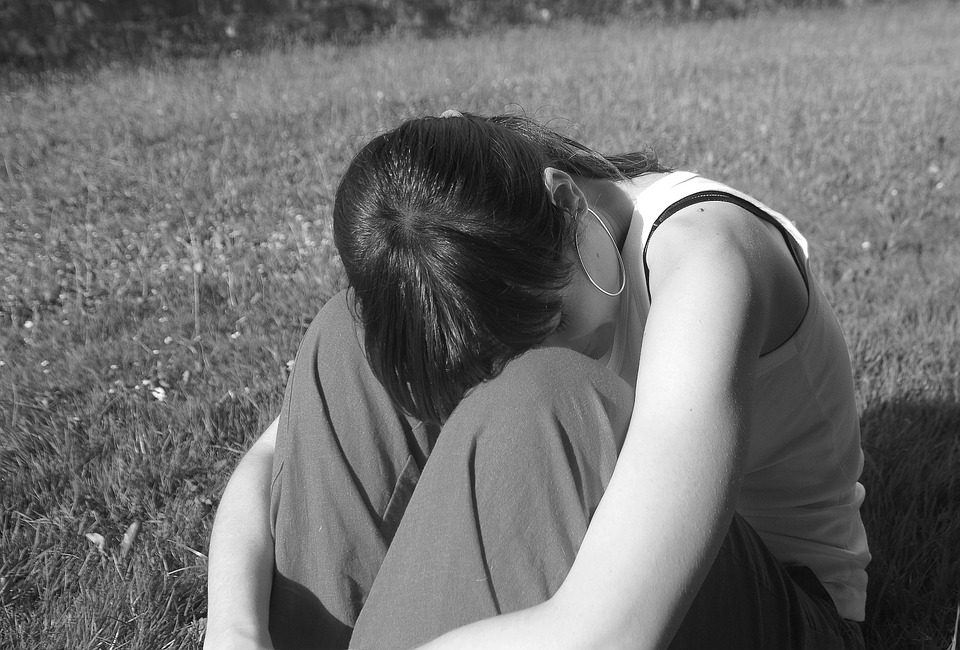How little do they see what is, who frame their hasty judgments upon that which seems. (Robert Southey)
As a kid growing up in the Baby Boom that followed World War II, I was indoctrinated in what was to become the “official” American view of the French in that devastating conflict. The narrative went something like this:
With Hitler on their doorstep in the summer of 1940, the French turned cowards at Dunkirk, leaving in dire peril the 350,000 or so British soldiers who had come to their aid. Too lazy to fight for their country, the French let the Germans overrun Paris. But what could one expect, really? They were pretty much Nazi-sympathizers and collaborators, who after the war hid their cowardice and complicity by claiming some mythically high number of French Resistance members.
The anti-democratic and collaborationist policies of Marshal Pétain’s Vichy government, who signed an Armistice with Germany in June of 1940, only served to reinforce this unflattering portrait of cowardice and collusion.
Of course, this neat narrative, like all pat explanations, is woefully simplistic and more than a tad xenophobic. Whole libraries have been written about World War II, and to read even a small portion of this documentation is to quickly grasp the thick tangle of issues and personalities involved.

- The rapid and unexpected collapse of the Maginot Line, which the French had built in the 1930s, believing it would significantly slow any invading force and protect their industrial basin in Alsace-Lorraine.
- The struggle for control of France’s overseas empire between the collaborationist Vichy government and the Free French forces aided by Britain and the United States. A sort of war within a war.
- Concerns about preserving Paris from the utter annihilation that artillery, tanks, and bombs would bring.
- And, of course, the continual disagreements among the various political and military leaders—French, British, and (eventually) American—about best responses to any and all these issues.
A description of Oxford historian Robert Gildea’s book Fighters in the Shadows illustrates the knotty muddle of just one part of this mix:
“[The] French resistance was part of a Europe-wide struggle against fascism, carried out by an extraordinarily diverse group: not only French men and women but Spanish Republicans, Italian anti-fascists, French and foreign Jews, British and American agents, and even German opponents of Hitler. In France, resistance skirted the edge of civil war between right and left, pitting non-communists who wanted to drive out the Germans and eliminate the Vichy regime while avoiding social revolution at all costs against communist advocates of national insurrection.” [My italics.]
So, what are we to believe here? How do we separate the strands of fact from fiction? Is there some larger question we should be asking before we rush to judgment?

This past September, I viewed an exhibit, “Renewal: Life After the First World War,” at London’s Imperial War Museum. A section of the exhibit focused on the impact of that war on France. Like many people, I’ve seen countless movies about the fighting in the Somme, at Verdun and Amiens. The endless stretches of gut-ripping barbed wire. The hand-to-hand fighting in the trenches. The shell-shock and gassing. Brutality on steroids. But it wasn’t until I saw the dozens of photos in the IWM exhibit that I understood how thoroughly France had been devastated. They took a drubbing like no other country in that war. The photos looked like the images we see of Syria today. Whole towns and cities reduced to rubble. Acres and acres of farmland and countryside blackened, barren.
Gazing at these photos—casting a wider eye—a light bulb went on. I realized the deeper, pertinent question was not were the French cowards in the face of the Nazi onslaught, but given the utter devastation to their country, the mind-numbing loss of people and towns, the years and resources it took to rebuild after that first war, who in their right mind would be eager to rush into a second annihilation?
To cast a wider eye in search of a deeper understanding is not to court “alternative facts,” but to consider the full scope of a situation, what the law calls the “mitigating circumstances.”
Mitigating Circumstances
Some years ago, a friend of mine, a case worker in social services, told me about a Vietnamese family she knew, a single mother and her ten-year-old son.

The family came to her attention after an incident at the child’s school. The boy became ill in class one morning. When the school called the mother’s workplace, they learned that she had not been employed there for the past four months. No, there hadn’t been a problem with her work. Staff had simply been cut by a third. It was 2008. People were being laid off everywhere.
Mom wasn’t at home either. When questioned as to where she might be, the boy eventually said she was with “Uncle.” What was his uncle’s name? The boy shook his head. “Uncle” was what his mother called the man who paid their rent and gave her some money for groceries. Pressed further, he admitted she left him alone 3-4 days each month to go off with “Uncle.” She left food for her son and told him not to let anyone in the apartment, but he got scared sometimes at night when she was away, he confessed.
Clearly, this was not a good situation. And the first response of many might be to call social services and report the mother as a delinquent parent whose child should be removed to foster care.

Fortunately, the person—a former teacher—who made the call cast a wider eye over the situation. Why would this woman—a devoted mother who never missed a parent-teacher conference, whose former part-time job had allowed her to be home when the boy returned from his after-school program each day, who slept on the sofa in their tiny apartment so that her son could have the single bedroom—why would this woman leave her child alone for days at a stretch to go off with some man?
She asked herself what were the mother’s choices? Laid off from her job, with a child to house and feed, as an immigrant with little education, what alternatives did she have?
And that question made clear the path forward. That the way to help this struggling family was not to tear it apart. That the relevant question here was not parental fitness but basic survival.

The mother was given help in finding a new job that would work with her son’s school hours. She was also encouraged to enroll in a GED program—which she did—with an eye toward doing a two-year degree at the local community college. She and her son moved to a new address, one unknown to “Uncle,” and she was advised she could get a restraining order if he ever approached her again.
The Complicated Sticky Stuff of Life
Many people would not take an action that put their job at risk. And fewer still would trust a roomful of six-year-olds to keep their secret. My first-grade teacher did both.
Back in the day when teachers ran copies of math problems and spelling worksheets on something called a mimeograph machine, we had three holiday parties each year in my school: Halloween, Christmas, and Valentine’s. Leave-it-to-Beaver type moms called “room mothers” baked cookies for these occasions, and we played games. They were the three best days of school, and every kid eagerly awaited them. Except Tim.

Like Rudolph the red-nosed reindeer, Tim didn’t get to join in any holiday games. His parents were strict Seventh Day Adventists and celebrating holidays was a no-fly zone. They kept him home while we played Musical Chairs in our Halloween costumes. They kept him home while we ate fancy Santa Claus cookies and drank cocoa. But they didn’t keep him home for the Valentine’s Day bash. That was because our teacher did not tell them about the Valentine’s party. And, with a finger to her lips, she asked us not to tell anyone about her omission.
Yes, yes, I know this is so not kosher. When I recounted this story during seminar in my M.Ed. program, I thought the instructors would faint on the spot just hearing it. We are talking a “fetch the smelling salts” level of horrification here. And I get that. The parents’ wishes must be respected. Kids should not be asked to keep secrets. It is serious stuff.
And yet.

When my teacher asked for our complicity, she explained it was so Tim could join in our Valentine’s celebration. If we blabbed, Tim would miss yet another party.
Six-year-olds are more savvy than they are often given credit for. There wasn’t a child in the room who didn’t understand the stakes for Tim. There wasn’t one of us who hadn’t felt the yoke of adult choices crushing our own power to choose. I believe no one said a word.

What I recall about that Valentine’s party is that it was the best of all my elementary school holiday parties. A normally quiet child, Tim laughed out loud throughout the festivities and hooted joyfully when he won the egg and spoon race. It was his day. And we were all witnesses to this miraculous event—the rebirth of a classmate.
Was the teacher right to ignore the parents’ wishes concerning their child?
Was she wrong to give a child a day of happiness and a sense of belonging?
Life is frequently much more complicated, more tangled, than yes and no. Rules do not admit of extenuating circumstances, and yet what of consequence does not involve extenuating circumstances? What are the exceptions and who decides?
Not the Whole Story

On my first—and last—summer home from college, I worked at the local mall. My favorite co-worker was a girl named Marion. Buoyant and bubbly like a 1960s sitcom Donna Reed, she made me laugh and I made her laugh and it was a very jolly way to pass the hours in a minimum-wage prison. After my last shift before returning to college, we hung out for an hour or so at a Labor Day weekend fair, set up in the mall parking lot. We rode the Scrambler, the Tilt-a-Whirl, and some other ride that took us stomach-lurchingly high in the air and turned us upside down. Then I gave Marion a lift home. We would not be seeing each other again that summer. And though I didn’t give it any real thought at the time, in all likelihood we would never see each other again. Which is, perhaps, what made the next thing possible.

As she got out of the car—moving quickly, beyond reach of a comforting hug, beyond hearing any possible reply I might give—Marion whispered over her shoulder, “My grandfather used to rape me every night.” With those words, she was gone, up the walk, onto the porch, the screen door banging behind her, leaving me stunned.
So much seems simple and clear—until you dig a little deeper. Until you pull the camera back and cast a wider eye.

Casting a wider eye doesn’t always make things clearer. In fact, it tends to muddy the neat narratives we seem to prefer, with their clear steps leading to tidy conclusions. In the judgments we make, we are often like the fabled blind men describing an elephant, drawing overarching conclusions about the whole from a limited experience/knowledge. What we have heard or seen may be part of the story, but not the whole story.
Judgment involves a willingness to look beyond what seems obvious, the patience to gather and sift seemingly contradictory facts, and compassion.
Above all, compassion.

You really floored me with this post. So much to digest and to think about. You are right that complex situations confront us every week, if not every day, and that no pre-determined set of rules or conventions will ever suffice to address all of them. The situations you present are complex human things which admit of no simplification. Wonderful post!
LikeLiked by 1 person
Thanks Ed, as always, for your never-ending support. For some reason, your comment made me think of that line from the Crosby, Stills, Nash & Young song Teach Your Children: “You who are on the road must have a code that you can live by.”
LikeLike
Were you in contact with Marion ever again? She clearly trusted you a lot, but wasn’t at a point where she could truly discuss her problems.
Enjoyed this piece a lot, Amy. It was a thought-provoking way to begin a new year. See you!
LikeLiked by 1 person
Sadly, I never saw or talked to Marion again. We were 19, both living in different places after that summer, and youth tends to always focus on what’s next. It’s only later in life that you understand how many people slipped through your fingers. I hope she found some good professional help. Thanks for stopping by, Neil.
LikeLiked by 1 person
So much lies beyond our first assessment of any situation. A good reminder…
Thanks, Amy
LikeLiked by 1 person
As a former lawyer, you must have had that truth driven home many times. Good to see you here, Tom. Take care.
LikeLike
You’ve reminded me not to make snap judgments about people. We never know what others are going through until we are standing in their shoes. We all need this reminder about having compassion.
LikeLiked by 1 person
Yes, and be prepared to take in new info/re-evaluate. I have known people who said “I don’t want to have my ideas challenged,” which always struck me as odd. I mean, if your ideas/assessments are sound, then hearing new information offers no threat. And if new facts do contradict your present conceptions, then maybe it’s time for a rethink. Thanks for taking the time to read and comment.
LikeLike
Excellent! I work independently with developmentally disabled adults. People judge them all the time and treat them different because they can’t see what is wrong with them.
LikeLike
Maybe those folks should look inwardly. Thanks Diane for taking time to read and comment.
LikeLiked by 1 person
😄
LikeLiked by 1 person
The older I get the more I realise life isn’t black and white. Looking at people as individuals makes it easier to consider all angles.
LikeLiked by 1 person
So true, Clarissa. When I was 22, I felt I had more answers than questions. Decades down the road, I now feel that the questions far outstrip, and often complicate, the answers. Thanks for stopping by.
LikeLiked by 1 person
How did I miss this when you first posted it? Probably because I was traveling and hardly on Twitter, but I’m glad I found it now. Your blog is my all time favorite, Amy. I love how you take a complex topic and show us another way of looking at it. I love the concept of the wider eye. I also love your writing style and your natural humor. And “Above all, compassion.” ❤
LikeLiked by 1 person
Reminds me in a way of Charles Osgood’s “The Rest of the Story”, where you’d learn some new facts that put something in a different light.
As one of the commenters above mentioned, I too see more gray and less black and white as I get older. Your examples above really show the value in avoiding snap judgements and occasionally bending the rules.
All the current “zero tolerance” policies come to mind as examples of how we’ve made a bit of a wrong turn.
LikeLiked by 1 person
Agree 100%. Age/experience brings more questions than answers, but the questions are good. I’m reading a book about how WWI didn’t really end with the Treaty of Versailles, which is something I thought I knew a lot about, but guess what? There’s so much more I didn’t know–about continuing conflicts all over Europe, and how they played out–it’s making me see so much more of how we have arrived where we are globally. Thanks for reading and taking time to stop by.
LikeLike
Fascinating post, some great ‘stories’ with multiple lessons in each. As for the teacher! How can giving a kid a day’s happiness ever be wrong…
LikeLike
Wonderful wonderful heartwarming post.
Hooray for you and all of the others who make our world and lives a better place.
Especially When The Rules Do Not.
LikeLiked by 1 person